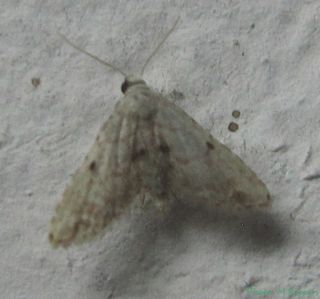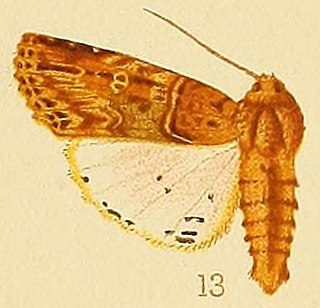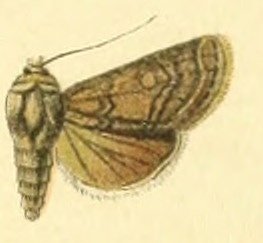
Acantholipes is a genus of moths in the family Erebidae erected by Julius Lederer in 1857.

Araeopteron is a genus of moths of the family Erebidae. The genus was erected by George Hampson in 1893.

Austramathes is a genus of moths of the family Noctuidae. It is endemic to New Zealand.
Rhabdophera arefacta is a species of moth in the family Erebidae first described by Swinhoe in 1884. The species is found in India, Pakistan, Egypt, Israel, Jordan and Iraq.

Acanthodica chiripa is a moth of the family Noctuidae. It is found in Ecuador.

Grotella dis is a moth in the genus Grotella, of the family Noctuidae. The species was first described by Augustus Radcliffe Grote in 1883. This moth species is found in North America, from the Argus mts. in Kansas to North Mexico.

Acrapex metaphaea is a species of moth of the family Noctuidae first described by George Hampson in 1910. It is found in Africa, including Zimbabwe and South Africa.

Acrapex spoliata is a species of moth of the family Noctuidae first described by Francis Walker in 1863. It is found in Africa, including Sierra Leone and South Africa.

Acylita distincta is a species of moth of the family Noctuidae first described by E. Dukinfield Jones in 1908. It is found in Brazil. Its wingspan is about 26 mm.

Acylita sanguifusa is a species of moth of the family Noctuidae first described by E. Dukinfield Jones in 1908. It is found in Brazil. Its wingspan is about 26 mm.

Acylita monosticta is a species of moth of the family Noctuidae first described by E. Dukinfield Jones in 1908. It is found in Brazil. Its wingspan is about 24 mm.

Spodoptera peruviana is a moth of the family Noctuidae. It is found South America, including Peru.
Micragrotis lacteata is a species of moth of the family Noctuidae. It is found in Africa, including Kenya.
Lasionycta decreta is a moth of the family Noctuidae. It is found in China.

Euxoa cognita is a moth of the family Noctuidae. It is found in central Asia, including western Turkestan.

The Erebinae are a subfamily of moths in the family Erebidae erected by William Elford Leach in 1815. Erebine moths are found on all continents except Antarctica, but reach their greatest diversity in the tropics. While the exact number of species belonging to the Erebinae is not known, the subfamily is estimated to include around 10,000 species. Some well-known Erebinae include underwing moths (Catocala) and witch moths (Thermesiini). Many of the species in the subfamily have medium to large wingspans, up to nearly 30 cm in the white witch moth, which has the widest wingspan of all Lepidoptera. Erebine caterpillars feed on a broad range of plants; many species feed on grasses and legumes, and a few are pests of castor bean, sugarcane, rice, as well as pistachios and blackberries.
Koyaga falsa is a species of moth of the family Noctuidae first described by Arthur Gardiner Butler in 1885. It is found in China, Korea and Japan.
Koyaga numisma is a species of moth of the family Noctuidae first described by Otto Staudinger in 1888. It is found in Russia, China, Korea and Japan.
Koyaga senex is a species of moth of the family Noctuidae first described by Arthur Gardiner Butler in 1881. It is found in Japan.

Mythimna prominens is a moth of the family Noctuidae. It was described by Francis Walker in 1856. It is found on Malta and in Greece, France, the Iberian Peninsula and Italy. Outside of Europe, it is found in Morocco, the Republic of the Congo, the Democratic Republic of the Congo, Kenya, Réunion, Madagascar, Nigeria, South Africa and Zimbabwe.








